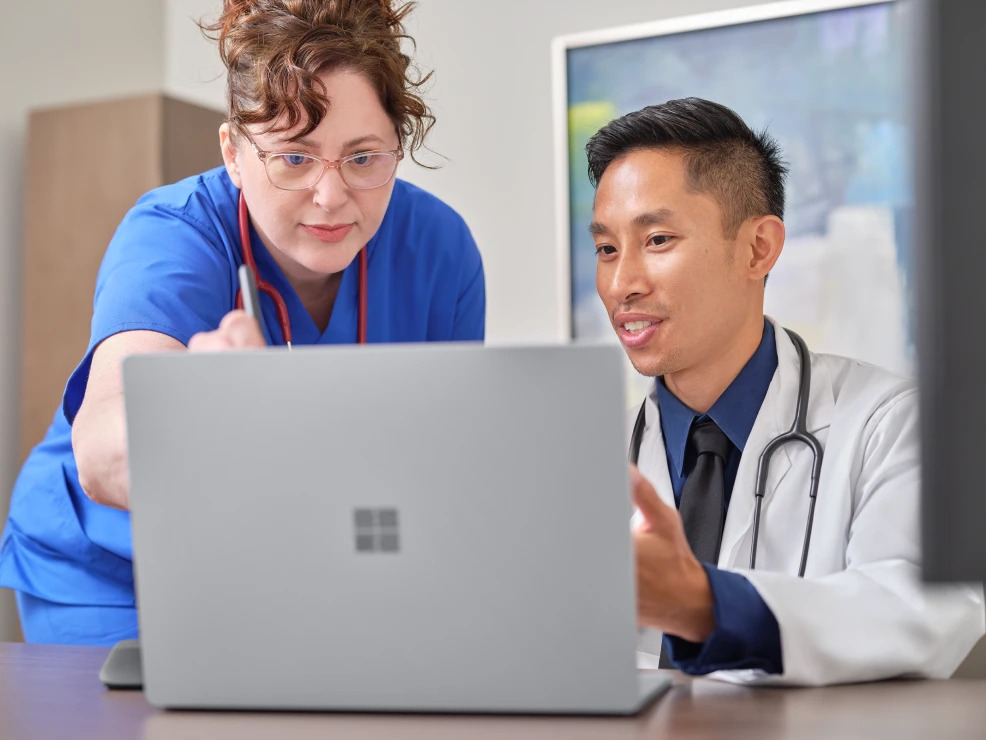
To help minimize the spread of COVID-19 while also supporting the speedy reopening of businesses and schools, Washington State Department of Health (DOH) launched WA Verify, an online portal that provides free digital copies of state vaccine records to individuals.
WA Verify provides residents with a fast, convenient, and trustworthy way to access and share their vaccination records. It is quickly becoming a valuable tool as Washington businesses and institutions began adopting new safety protocols, including asking individuals to verify proof of their vaccination status.
Built on Microsoft Azure, WA Verify uses SMART Health Cards to display vaccination records as a verifiable QR code that can be printed or stored on a mobile device. SMART Health Cards are a secure alternative to inconvenient and easily manipulated paper health records. They are built on an open-code, interoperable framework developed by the Verifiable Clinical Information (VCI) coalition. Microsoft and MITRE are founding members of VCI and serve on its steering committee.
Washington State was not alone in its decision to digitize health records. The adoption of SMART Health Cards is increasing both in the United States and abroad. In the first 12 months of their launch, over two dozen states adopted SMART Health Cards, giving 225 million people in the United States free, secure, privacy-preserving access to immunization records electronically.
Historical barriers to medical records access
Paper records, like traditional vaccine cards, are easily lost, damaged, and can be difficult to transport. Because organizations store immunization records in disconnected information systems, physical cards can be hard to access or replace. Paper records can also be difficult and costly to authenticate, creating additional concern about forgeries during the COVID-19 pandemic.
Additionally, paper records have posed challenges during natural disasters, with survivors often struggling to access their records under extreme conditions. Quan Le, Immunization Program Data Unit Manager at the Louisiana Department of Health, witnessed these challenges as residents evacuated the state during Hurricane Katrina in 2005.
“People whose lives had already been turned upside down by Katrina were unable to access their immunization records so that they could enroll their children in school in another state,” says Le. “The State Department was inundated with requests for immunization records. The challenge was trying to get these records into the hands of parents as quickly as possible so that their children could get back to learning and have some semblance of normalcy. Those efforts would have been so much easier if we had SMART Health Cards then. Luckily, LA Wallet gives Louisiana residents a SMART Health Card–enabled solution today.”
The next generation of vaccination records
Using SMART Health Cards, individuals are given control of their personal health information. With digital records like those from Washington, Louisiana, and many other states and countries, people can access and download their immunization records anytime, anywhere, and store their health records as a verifiable QR code. Individuals can share their SMART Health Cards with employers, schools, events, and at border crossings to authenticate their vaccination status.
The Washington State DOH played a fundamental role in ensuring this technology is equitable and accessible. “We were really motivated to make sure that no one would be denied access to their vaccination records,” says Dr. Bryant Thomas Karras, Chief Medical Informatics Officer at the Washington State DOH and VCI steering committee member. “When we launched WA Verify, we made SMART Health Cards available in 42 languages.”
By using Azure for infrastructure, the VCI was able to give adopters the tools they needed to quickly launch SMART Health Cards. “In Washington State, we completed a two-year project in only two to three months,” says Karras. “I am so appreciative of the collaboration with Microsoft and other state agencies. We could not have done it alone.”
SMART Health Cards unify and modernize records, leading to better patient outcomes for healthcare providers
Now, nearly half a billion people worldwide can access their medical data using SMART Health Cards. This technology holds massive untapped potential to connect disparate systems, making access to healthcare more equitable. Individuals can give their healthcare providers their health records in real time so that they can drive better health outcomes.
“SMART Health Cards are transforming old paper-based records into modern, streamlined records,” says Rebecca Coyle, Executive Director at the American Immunization Registry Association. “They are a standard that we can all embrace to move us into the next generation of immunization records and transform healthcare record keeping for the better.”
Learn more about how to deliver better patient insights, health, and care at Microsoft Cloud for Healthcare. And visit SMART Health Cards and the VCI website to read more about this technology.